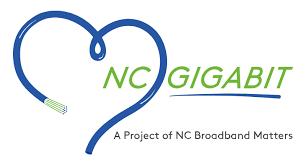Podcast: Play in new window | Download | Embed
Ever since the Covid-19 pandemic pushed schools online, rural cooperatives and other local broadband providers have been coming up with innovative ways to connect students during this difficult time. Ozarks Electric Cooperative, with its broadband subsidiary OzarksGo, is one of the co-ops that caught our eye over the past few weeks with its creative solution.
This week, Christopher speaks with Steven Bandy, General Manager of OzarksGo, about the history of the co-op’s fiber network and its new efforts to expand broadband access during the pandemic. They discuss the beginnings of Ozarks Electric’s Fiber-to-the-Home network and the co-op’s plan to connect all of its members in growing Arkansas and Oklahoma communities. OzarksGo has even expanded into a nearby city where it doesn’t offer electric service after seeing that the community needed better quality connectivity. Co-op members are extremely enthusasitc about the co-op’s fiber network, and Steven explains how people moving to the area target the Ozarks Electric service territory in their home search.
Christopher and Steven also talk about the effects of the pandemic on the co-op’s fiber network, which has seen an increase in interest. Steven shares how the cooperative is partnering with a local school district to connect Wi-Fi hotspots on busses and in community buildings with fiber optic backhaul. In addition to bringing broadband access to students in response to Covid-19, OzarksGo has also increased speeds at no cost to subscribers.
This show is 19 minutes long and can be played on this page or via iTunes or the tool of your choice using this feed.
Transcript coming soon.
Listen to other episodes here or view all episodes in our index.
Subscribe to the Building Local Power podcast, also from the Institute for Local Self-Reliance, on iTunes or Stitcher to catch more great conversations about local communities, concentration of corporate power, and how everyday people are taking control.
Thanks to Arne Huseby for the music. The song is Warm Duck Shuffle and is licensed under a Creative Commons Attribution (3.0) license.

